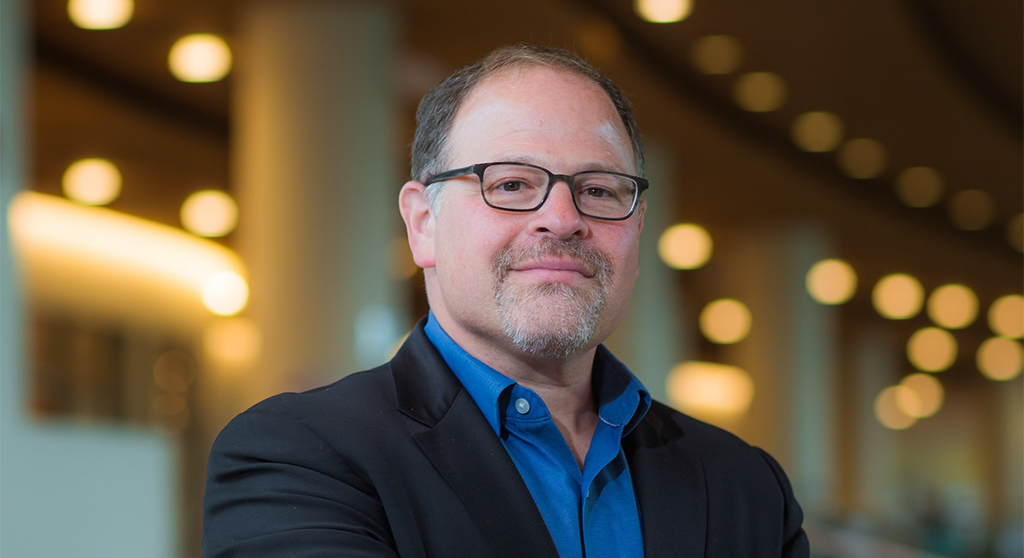Disinformation and misinformation: Gloom from experts with books by university presses

Lee McIntyre, author of “On Disinformation: How to Fight for Truth and Protect Democracy.” (Photo: author’s website, with edges expanded in Photoshop)
Disinformation is everywhere: in politics, online, between friends – and between senators. Lee McIntyre, author of “On Disinformation: How to Fight for Truth and Protect Democracy” and Adam Berinsky, author of “Political Rumors: Why We Accept Misinformation and How to Fight It,” know this better than anyone. McIntyre is a research fellow at the Center for Philosophy and History of Science at Boston University and a recent lecturer in ethics at the Harvard Extension School. Berinsky is a Mitsui professor of political science and the director of the MIT Political Experiments Research Lab. Both are speaking on the issue Saturday as part of University Press Week.
Lee’s inspiration to write was the Jan. 6, 2021, insurrection. To Lee, this revolt against democracy wasn’t an accident, or a mistake, but a systemic effort inspired by earlier examples of science denial. Denial of science isn’t new in any sense – Galileo was censured by the Roman Catholic Church because his work didn’t support its religious narrative. Modern science denial only began in December 1953, however, when a study came out showing that tobacco was bad for the lungs and cigarette companies had to figure out a way to keep customers, Lee said. Their solution was denying the science for as long as they could. This same strategy has been adopted many times over since, most prominently by climate change deniers.
Now this science denialism has morphed into what Lee calls “reality denial,” in which politicians use propaganda to convince their followers that reality is politicized, and that the other political party is lying. When Americans flat-out don’t believe the truth it is easy to manipulate them, and democracy is in danger.
The 2024 election is in danger, Lee said.
“What we’re seeing in American society today, all of the chaos, all of the confusion, is a result of disinformation,” Lee said. “There was no stolen election in 2020. But Trump is pretending that it was because it serves his interests. And also because now he can claim ‘Oh, well, if they could steal their way into the office in 2020 I could steal my way in 2024.’”
This, Lee said, is a classic disinformation tactic in use by the Russians: accusing the other side of doing what you’re doing, then using it as an excuse. In an interview, former president Donald Trump said that because Biden is weaponizing the Justice Department, he will do the same if elected president – and indict Biden. While some of these ideas may not functionally work, they are frightening, and the fact that this is coming from a contender for the 2024 presidential election speaks to the dangers facing democracy.
Berinsky, similarly, feels that misinformation – which is different from disinformation, which is deliberate – has become prominent in part because it is dispersed in particular groups so polarized that they won’t believe another view. The only way to try to end the political cycle of Republican cynicism, Berinsky said, is to get prominent Republican leaders to announce that denialism around issues such as climate change and vaccine effectiveness is wrong.
Still, throughout Berinsky’s studies, he found it difficult to change people’s minds. “I could move people’s beliefs in the short term for about 5 to 10 percentage points, making them more likely to reject the misinformation. But if I went back to the same people two weeks later, I found that it wasn’t very effective, and most of them reverted,” he said. In total, Berinsky found that about 20 percent to 25 percent of Americans believe misinformation campaigns such as that 911 was an inside job. “That’s a huge percentage of people,” he said.
The authors said they were grateful to university presses – without them, McIntyre couldn’t have included a lengthy footnotes he loves, and Berinsky couldn’t have conducted as much in-depth research.
“I think that there’s a worry for some academics that they will have to eventually cut corners in the interest of telling a compelling story, and I’m just not comfortable with that,” Berinsky said. “Academic presses, on the other hand, are great for that. They really serve to promote the function of academia, which is producing knowledge.”
Lee McIntyre and Adam Berinsky are scheduled to speak at a free event 1 to 2:30 pm. Saturday at the The MIT Museum, 314 Main St., Kendall Square, Cambridge.




